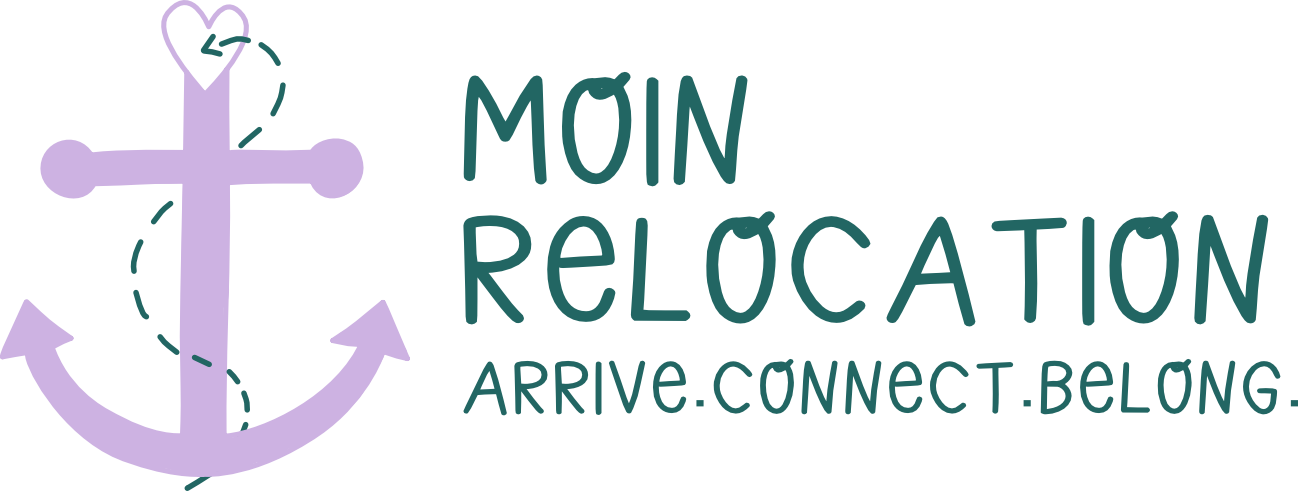Beyond Boxes & Visas: What Families Really Need During Relocation
Relocating for work is often framed as an exciting opportunity.
A career move. A fresh start. A bold decision.
But when a family relocates, it’s not just a job that moves.
It’s a whole life.
Behind every well-crafted relocation package, there are very real people managing complex emotions, invisible pressures — and often a quiet sense of loss. And yet: most companies still treat relocation as a checklist of logistics.
I’m writing this blogpost as an invitation to zoom out. To see more. And to do better.
1. A job for one – sacrifice for the other
Let’s say a tech company recruits a skilled software developer from São Paulo. He moves to Germany with his wife and two kids. He has a work contract, relocation support, and onboarding.
His wife, a trained architect, doesn’t speak German and has no local license. She spends months at home, isolated, managing childcare while trying to adjust. Her career hits pause. Her confidence, too.
This story isn’t rare. It’s the rule.
Too often, partners are an afterthought in the relocation process - even though they’re the ones holding the new life together behind the scenes.
2. “Will my kids feel like they belong?”
Children’s well-being is one of the biggest emotional weights families carry. A family from Ghana is excited about their move to Hamburg - but quickly faces a tough reality: the daycare waitlist is 12 months long, and the school nearby doesn’t offer extra language support. Their 7-year-old is the only child of color in her class, and comes home crying after a classmate makes a “joke” about her hair.
When children are struggling, the whole family struggles.
This isn’t about perfection — it’s about preparedness. Families don’t expect miracles. But they do need help understanding the system, finding supportive schools, and preparing for cultural differences.
3. A hotel is not a home
Many companies offer short-term housing for new arrivals. But when temporary becomes indefinite, it takes a toll.
One client — a nurse from the Philippines — shared a room in a shared apartment for months with her two kids while waiting for or rather trying to find permanent housing. Her work schedule was intense, and she had no space to decompress, cook proper meals, or build a routine for her children.
Relocation doesn’t feel like a new beginning when you’re living out of a suitcase.
Stable housing is not just about comfort — it’s about dignity.
4. The invisible weight no one sees
The emotional burden of relocation is rarely talked about — especially for women and caregivers.
A mother from Argentina confided in me that she hadn’t had a real conversation with another adult in weeks. Her partner was at work all day, and she was at home with a toddler and a newborn. She felt disconnected, unproductive, and deeply lonely.
No one in HR had ever asked how she was doing.
Mental health support and social integration shouldn’t be luxuries. They’re basic human needs — and critical to a successful transition.
5. Language, bureaucracy, and the silent overwhelm
In Germany, simple things like making a doctor’s appointment or registering your child for kindergarten can feel like navigating a maze — especially in a language you don’t speak.
A father from Kenya told me:
“My son was sick. I tried to call a pediatrician, but no one spoke English. I had to ask my German neighbor to call for me. This was embarrassing.”
When language becomes a barrier to healthcare, education, or daily life, it’s no longer a small inconvenience, it is a structural problem.
👀 So what’s the cost of overlooking this?
💸 Early returns
💔 Unhappy employees
😞 Burnout in the family
🚫 Failed relocations
Companies invest thousands in finding the “right” talent — only to risk losing them because their support ends after arrival.
I do believe that this is avoidable.
What people-centered relocation can look like:
Orientation not just for the employee, but the whole family
Guidance through the daycare and school system
Mentorship for accompanying partners
Access to multilingual mental health services
Culturally aware support that doesn’t stop at the visa
🧡 When families feel seen, they stay.
Relocation isn’t just about helping people arrive. It’s about helping them belong.
And that means moving from “checklist” to “care.” From “relocation service” to real support.
If you're an HR leader or team working on international assignments - I’d love to support you in building a relocation approach that centers families, not just forms.
Let’s talk.
Want to go deeper? I offer tailored consultations, checklists, and workshops for companies that want to improve their relocation strategy for international hires and their families.

